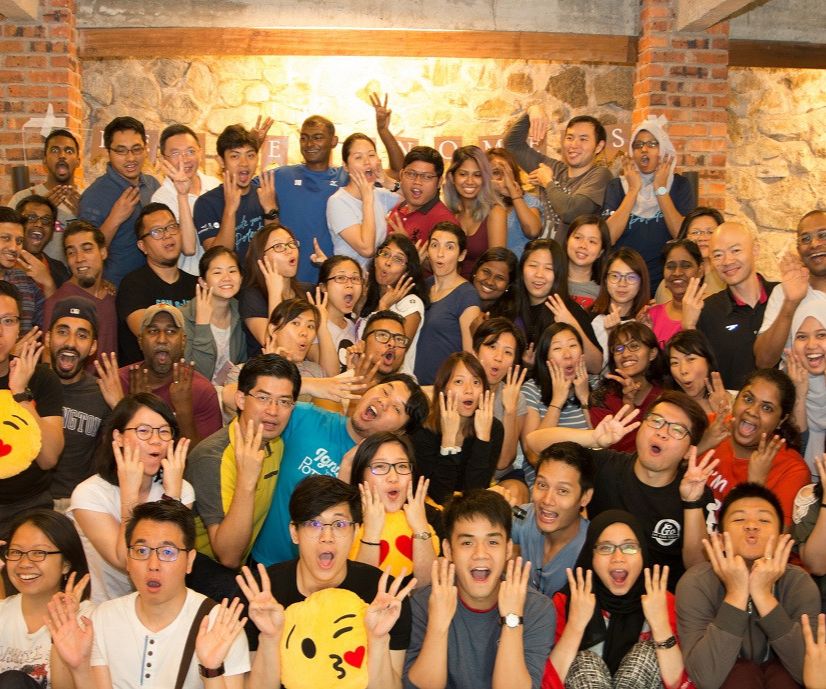Getting The Best Out Of Gen-Y

They are young people who would dish feedback straight to your face. They prefer wearing T-shirts, jeans and flip-flops to the office. They want to do great work but they do not want work to take over their lives, and they operate with a sense of entitlement.
Sound like a difficult bunch of people to work with? Well, they can also be the easiest people to get along with. Who are they? Gen-Y individuals are typically defined as the generation born between the years 1980 and 2000.
They are also referred to as children of the post-World War II Baby Boomer generation (typically born between 1946 and 1964). Famous Gen-Y individuals include Mark Zuckerberg, Nicol David and Yuna.
They are also the next generation of leaders at work. In Malaysia, the Asian Institute of Finance (AIF) says almost half of Malaysia’s workforce is constituted by Gen-Y.
How are they different? Gen-Ys are smart, capable, fast-paced and would never settle for anything less than the best. They are also the ones who know how to demand for what they want as they believe in their entitlement. This is heavily due to the way they have been brought up.
“Gen-Y was raised with a different perspective as their parents taught them that opinions are important,” comments Jamie Gutfreund of the Intelligence Group in a Forbes article, “hence there is an expectation to have a stake in outcomes”.
They’ve also been raised in an age where information is easily accessible, and many have been brought up in households where they were consulted on issues or situations affecting them.
In short, as compared to previous generations, Gen-Ys grew up being well-informed and opinionated.
Gen-Y at work
Unlike the Baby Boomers who are slowly reaching their retirement age, Gen-Ys are slowly taking over the workplace.
They are people who don’t seek a predictable and steady work life. Hence, many organisations face retention issues with Gen-Y employees.
Jason Dorsey, a best-selling Gen-Y author, says “Gen-Y is the only generation in the workforce that has never expected to work for one company their entire lives”.
They believe that everything can be achieved in a short time. They have the tendency to switch roles, departments or employers when they feel that they are unable to develop further in that environment.
At work, they also look for passion, purpose, flexibility, transparency as well as an interesting and fast-paced work lifestyle. They believe in balance and need to know the purpose behind their contribution.
Understanding what motivates Gen-Y
On the one hand, they may be your high-maintenance, entitled, technologically sophisticated and unpredictable new talent pool, yet Gen-Yers are potentially the most high-performing generation today.
Unfortunately, not many believe in the latter. The one thing that many employers agree on is that Gen-Y graduates are “not workplace ready”. Some would go as far as to say that Gen-Y is the toughest generation to deal with, be it at home or at work.
Yet each generation has its own unique, often misunderstood, characteristics. So it’s all about understanding what motivates and what makes them tick. The shift in today’s workforce demographics requires management to appreciate Gen-Y in order to maximise their full potential.
AIF’s CEO, Dr Raymond Madden, shares that there is a need to gain a deeper understanding of what drives Gen-Y. So, can Gen-Y actually become loyal, hard working and reliable? The answer is yes, but staff retention strategies have to be refreshed.
The good news is numerous organisations and human resource practitioners are already adapting to the ways of Gen-Y.
A different generation
In order to get the best out of Gen-Y, there is a need to firstly understand that the Gen-Yers are different to other generations. Getting back to basics, Gen-Yers are simply a bunch of young people who love freedom and entertainment.
They need the flexibility to be able to work in a non-structured environment. They’re not lazy and they will put in the hours when needed, but they also need to have time off from their desk to sip a cup of coffee before resuming work.
An engaging and an interactive work environment motivates them. Being silent at work and just getting the job done doesn’t work for Gen-Y. They appreciate a fun workplace, and they enjoy a creative and innovative working environment.
In terms of authority, they have a different perspective. They believe in a non-hierarchical working environment where they feel they can talk to the CEO on their first day about what’s on their mind.
They would also be the ones who challenge and question senior leaders in the organisation on things they don’t personally believe in. Although other generations many find this hard to manage, yet this has allowed for openness and greater transparency in organisations.
Gen-Y’s tech savviness and desire to find an easier way around things has also helped improve things at work, be it work processes or work documentation. But even after all that, Gen-Yers are not the boss and the world should not bend to the preferences of Gen-Y.
However, the best managers will try to find ways to refine and direct Gen-Y’s talents and peculiarities to help them grow into effective leaders who can add value to their organisations.
As shared by Jason Dorsey, the bottom line is that every new generation that enters the workforce will only frustrate the ones who are already there. Each generation assumes the one after them has it easier than they did.
Put it simply, Gen-Y is simply the “new kid on the block”. So, don’t try to fix Gen-Y or you’ll be disappointed. Instead, watch, observe and hear them out. Allow for the Gen-Y to get outrageous and random with their work lifestyle and you may be amazed at how they can change the world.
Jermaine Bee heads the learning and development team in Leaderonomics and is passionate about training and development work revolving around Gen-Y. For programmes on leading and managing Gen-Y in the workplace, email people@leaderonomics.com. Click here for more articles.
Functional
This article is published by the editors of Leaderonomics.com with the consent of the guest author.





